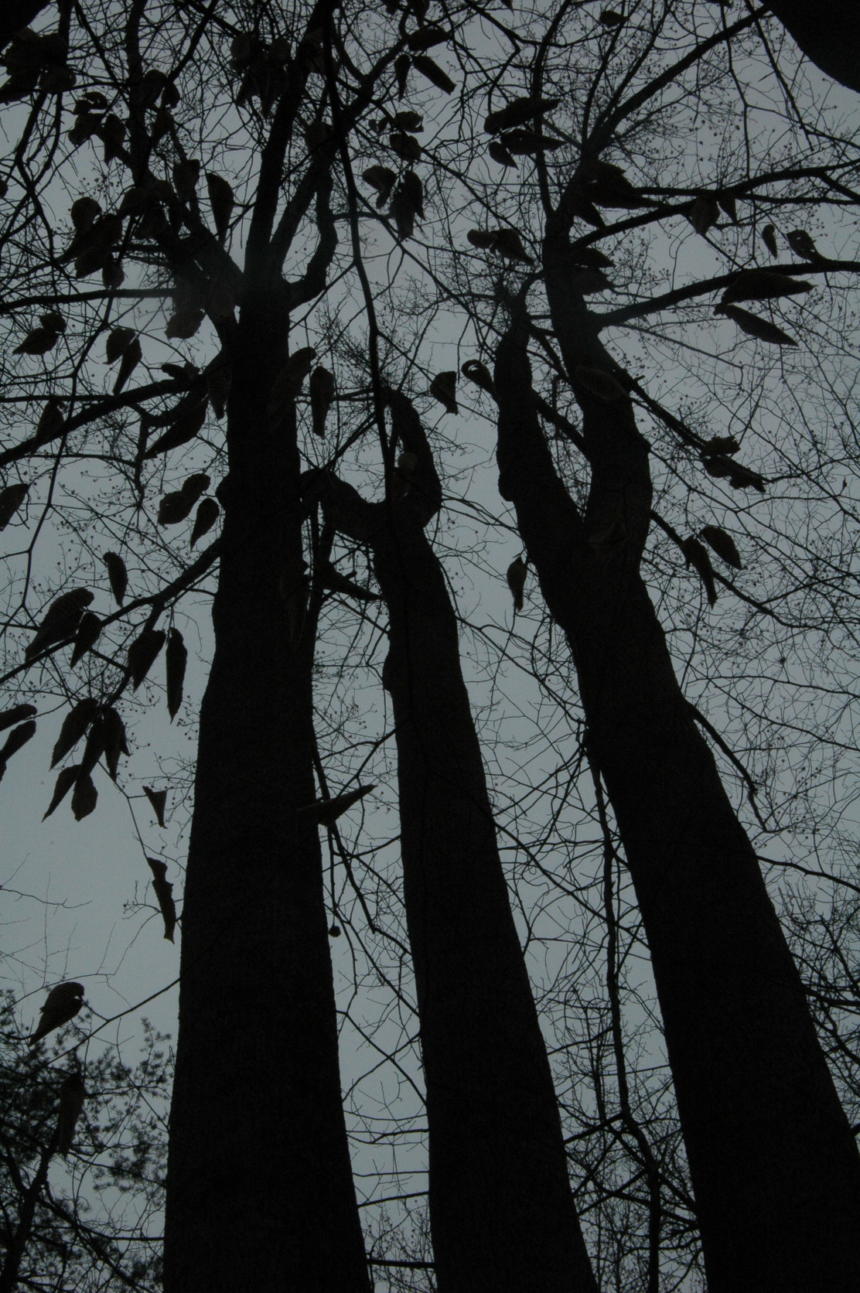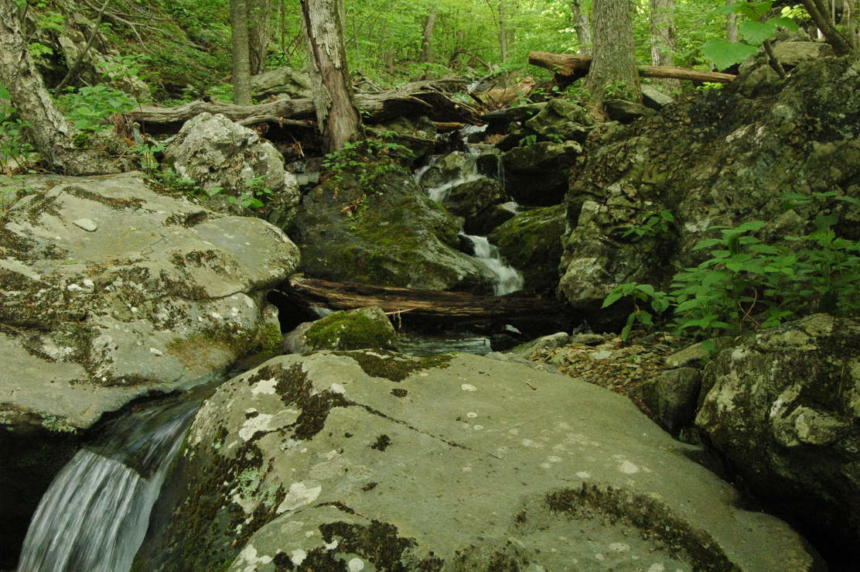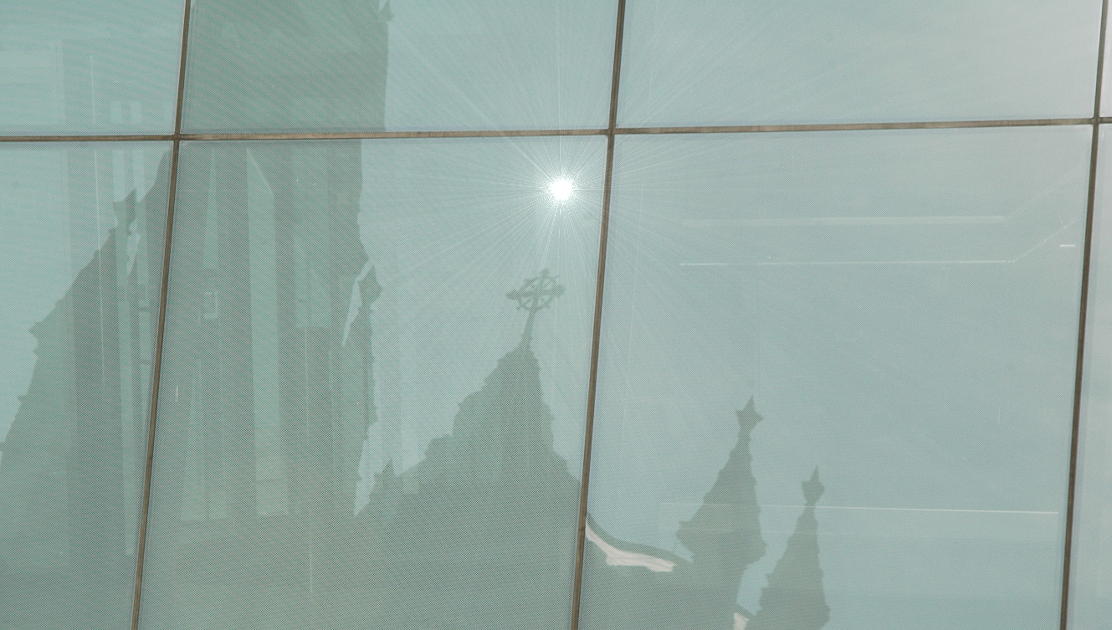Choosing Less
Notes on the History and Practice of Voluntary Simplicity
By Matt MilesThe phrase “voluntary simplicity” has, to my ears anyway, a quasi-paradoxical ring to it, not unlike “waking dream.” It accrues meaning by pointing to the implicit assumption in its antithesis: That we are by default, if not involuntarily, immersed in a world that tends toward complexity and confusion. For most of us alive today in the hyper-real world of the 21st century, this assumption rings truer than ever as we struggle to deal with ever-accelerating rates of technological, societal, and environmental change, and perhaps succumb along the way to a permanent state of what futurist Alvin Toffler once termed “future shock.”
If we unpack the phrase further and consider the necessary qualifier “voluntary,” we may arrive at the conclusion that simplicity itself—at least in the consensus view toward human existence—is not a state commonly aspired to or encouraged, but one to be avoided. In this respect, it is a condition imposed on us by circumstance or fate—for example, through exile, prison, or a penurious existence. But rarely is it something to be willingly sought after. Simplicity considered in this light then, is the slightly fairer sibling of poverty and destitution.
The currents of human history are overwhelmingly driven by the force of material acquisition: War and plunder, the spoils and riches of empire, fortune and wealth, profit and gain, risk and reward. Limitless economic growth, we have been told, is the water that will lift all boats. But throughout history, there have also been those who have chosen to swim against the tides of materialism and consumption, who have plugged their ears to the siren song of technological progress and ever-increasing social complexity.
Today there are almost as many reasons for seeking out a path of voluntary simplicity as there are practical implementations and examples of the ideal in contemporary life: Slow food; the tiny house movement; individuals like “Moneyless Man” Mark Boyle; and organizations like Adbusters, whose “Buy Nothing Christmas” and similar efforts seek to creatively subvert the forces of consumerism at work in our personal lives.
Historically, however, the majority of men and women who have sought out a simpler existence were driven to do so in service of the contemplative or spiritual life. Status and wealth—and a preoccupation with the attendant worldly affairs they engender—have often been seen as a direct obstacle to the clarity and peace of mind necessary to cultivate inner awareness. An insistence on asceticism, poverty, and a separation from, if not an outright rejection of, worldly matters is common to many contemplative and philosophical traditions throughout history.
Simplicity, patience, and compassion were the three fundamental elements of Lao Tzu’s practice of Taoism. Jesus Christ taught forgiveness and humility while warning against attachment to material wealth. Gautama Buddha renounced an easy life of social privilege to pursue a life of asceticism.
 Diogenes, the Greek philosopher who was reputed to have lived in a barrel, is one of the more colorful examples of those who have aspired to live the simple life, while the mystic and polymath St. Hildegard of Bingen made numerous contributions to medieval culture while abbess at a Benedictine monastery.
Diogenes, the Greek philosopher who was reputed to have lived in a barrel, is one of the more colorful examples of those who have aspired to live the simple life, while the mystic and polymath St. Hildegard of Bingen made numerous contributions to medieval culture while abbess at a Benedictine monastery.
More recent and perhaps more secularly oriented examples of simplicity seekers include the notoriously thrifty Henry David Thoreau; Mohandas Gandhi, who famously advised that we “live simply so that others may simply live;” and Helen and Scott Nearing, authors of The Good Life.
But one of the most widely known and well-loved advocates of voluntary simplicity was St. Francis of Assisi, the namesake of the current pope as well as the patron saint of animals. Francis, the son of a well-to-do medieval Italian merchant, began his spiritual journey in his twenties, as so many of us do when finally we see the world in all its seriousness and enormity through the eyes of adulthood.
An early emphasis on material poverty underscored the development of Francis’ own practice and teachings. His spiritual evolution continued over the course of several years, spurred on by a series of visionary experiences, during which time he cared for the sick and poor, and preached to the locals around Assisi, many of whom initially regarded him as crazy.
In 1209, Francis formalized his teachings with the Rule, and with a group of disciples approached Pope Innocent III in Rome for permission to found what we now know as the Franciscan Order. The request initially met with opposition from a church that had, over the course of centuries, become entrenched in the worldly and political affairs of medieval Europe, accumulating great wealth and vast tracts of land. Francis’ doctrine of radical poverty was viewed by some as a challenge to a worldly church that had strayed far from the teachings of Christ, and in this regard Francis is noted by many as one of the first Christian reformers.
What sets Saint Francis apart from many other Christian monastics and spiritual seekers who have sought to separate themselves from the material world through a practice of simplicity is not just his insistence on the abandonment of worldly possessions, but the spirit of joy, wonder, and love with which he and his apostles actively engaged both the human and natural world they found themselves immersed in.
The early Franciscans’ renunciation of the material world was not mired in cloistered solemnity, spiritual self-flagellation, or theological abstraction—rather, it sought to facilitate the unencumbered and reciprocal embrace of both the human and more-than-human worlds. This joyous spirit is evident not only in the writings of Francis, but in the day-to-day actions of Franciscans as they went about daily life, hailing others with the greeting “pace e bene!” (peace and all good), and referring to members of the order as “jesters of the Lord.”
There are many legends surrounding St. Francis’ relations with and regard for animals, including the probably apocryphal tale of the Wolf of Gubbio, who is reputed to have ceased his predations at St. Francis’ behest. But in the poem, “The Canticle of the Creatures,” we see evidence of a vital and in some ways almost animistic approach to Christian theology that is grounded in the natural world and natural forces, and which is more than a little suggestive of earthier pagan and shamanic traditions:
… Be praised, my Lord, for Sister Moon and stars:
in heaven you formed them—lovely, precious, clear.
Be praised, my Lord, for Brother Wind and air,
and every kind of weather, cloudy and fair, by which you give your creatures what they need.
Be praised, my Lord, be praised for Sister Water—
she is so useful, precious, chaste and humble….
While Francis is careful here to acknowledge a monotheistic Christian Lord to whom he is offering praise, the manifestations of natural forces as avatars (Sister Moon, Brother Wind) evoke for me a certain wild and pantheistic sensibility more recently seen in the works of poets like Blake, Shelley, and Jeffers, or the writings of the American transcendentalists, or the ecstatic prose of Annie Dillard’s “Pilgrim at Tinker Creek.”

This practice of seeking simplicity by minimizing ties with the materialistic and destructively consumerist elements of society to bring back into focus the increasingly endangered more-than-human world—the fragile web of life that supports us all—is one that many spiritual leaders of our current age now advocate.
It is certainly one of the more hopeful developments in recent history that a pope such as Francis has come to lead one of the world’s great religions. The current pope’s invocation of the legacy of Francis of Assisi is apparent in his words and deeds. In recent pronouncements, not the least of which is the encyclical Laudato Si’, he has averred that the ecological crisis we are facing today is bound up with moral and spiritual crises that can no longer be ignored.
While I am not a practicing Catholic nor an adherent of any spiritual practice, strictly speaking, I see the wisdom and value in these times of pursuing a simpler life rooted in respect for and communion with the natural world that sustains us. There are many reasons for this, but most powerfully, I see a lifestyle that embraces voluntary simplicity—necessarily executed on the individual level—as one of the only legitimate paths left to facilitate social and ecological justice.
Our political and social leaders have proven themselves unwilling or incapable of effecting the changes that are already long overdue to restore the health of our planet. It is up to us as individuals then to be the change we wish to see in the world. If the very forces that are responsible at the global level for the ecological crises we are facing all depend on our participation at the atomic, individual level—and they all do, if we really think about it—then what could be simpler and more revolutionary than choosing to restrict our participation or not to participate at all?
St. Francis of Assisi, along with many other contemplative and spiritual leaders who have come before and after him, have demonstrated how a practice of voluntary simplicity can deepen and strengthen one’s spiritual life. Now, in the early 21st century, as a globally dominant and ultra-materialistic culture appears to be the driving force behind many of the world’s ecological and social problems, it seems appropriate to take a long, hard look at our own lives and think about all the ways that people and planet stand to benefit from a simpler, less materialistic lifestyle.
In the spirit of William of Occam, the medieval philosopher and Franciscan friar who gave the world the logical principle Occam’s Razor—the simplest choice is often the best choice.
Matt Miles is a writer, poet, permaculturist, maker, and rock climber. His work has previously appeared in Dark Mountain. He lives in the Blue Ridge Mountains of North Carolina where he and Tasha Greer run the reLuxe Ranch, a whole systems farmstead.
Photos courtesy of Matt Miles
